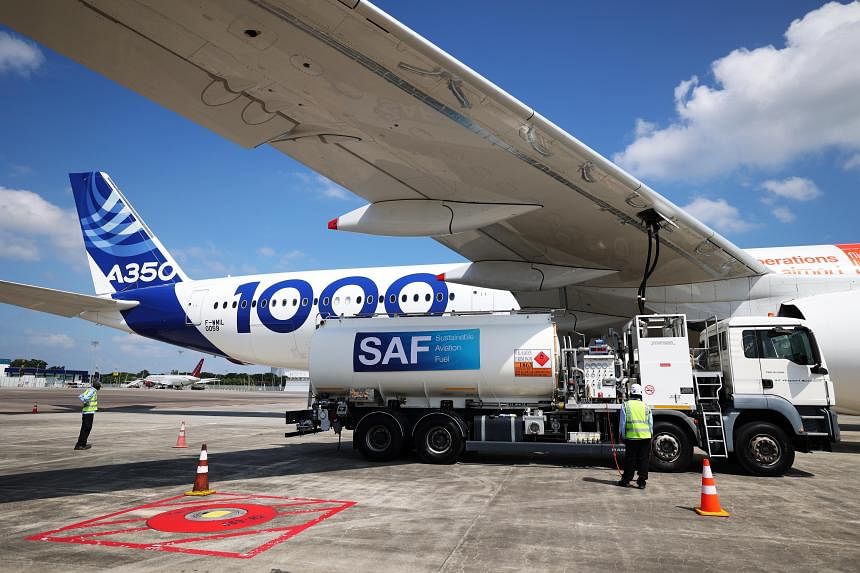SINGAPORE – News that a levy that will be imposed on flights departing Singapore from 2026 to promote the use of greener jet fuel was met with resignation by some travellers, while others said the estimated increase in ticket prices is insignificant.
The Civil Aviation Authority of Singapore (CAAS) has estimated that the levy for economy-class passengers will range from $3 to $16, depending on flight distance.
Money collected from the levy will be used to buy sustainable aviation fuel, which costs three to five times more than conventional jet fuel. Singapore wants such fuel to make up 1 per cent of all jet fuel used in Changi and Seletar airports in 2026, and to raise this to between 3 and 5 per cent by 2030.
For frequent fliers like Mr Manoj Chamanlal, the estimated increase in fares is not going to slow down his travel.
“I don’t have a choice, because it is for work,” said the 53-year-old, whose job as a vice-president in a biotechnology company has taken him to places such as Taiwan and the Philippines six times in February alone.
However, he is concerned that the levy can add up when he takes his wife and three children – aged four, seven and 10 – on trips. On average, the family has two overseas holidays a year.
Marketing manager Damian Koh, 42, felt that the estimated levy seems almost negligible against all other charges such as the transaction fee and taxes that go into the final ticket price.
“Ultimately, the airlines will pass on the higher cost to the consumer,” said Mr Koh, who works in the consumer electronics industry and travels to Bangkok two to three times a month.
Noting that he has become increasingly conscious about sustainability, he said he welcomed the levy even though it means paying more, as it is important for the aviation industry to move towards its environmental goals.
Ms Evonne Low, 46, a marketing manager in the beauty industry, said: “The levy is still affordable, and it does not deter me from planning my trips, regardless of the distance”.
Blockchain technology consultant Clarence Soh noted that flight ticket prices fluctuate and “are not transparent to the passenger anyway”. “Adding such surcharges makes no real difference to me,” said the 50-year-old, who took 14 flights in 2023.
“At the end of the day, the cost of everything goes up, and the consumer pays the bill. If I need to fly, even if it is hundreds of dollars more, what can I do?”
Responding to queries about the levy, a Singapore Airlines (SIA) spokesperson said the group supports the proposals put forth in the CAAS’ sustainable aviation blueprint.
The spokesperson did not give details on how it is working towards its goal of having sustainable aviation fuel account for 5 per cent of the fuel it puts into its aircraft by 2030, in the light of the Government’s plan to impose a levy and buy such fuel centrally.
“What we can share is that fuel costs, which include the cost to procure sustainable aviation fuel, are treated as part of our operational expenditure.”


